Governor Andrew Cuomo’s terrible, no good, very bad month continues. Last week and over the weekend, two former aides leveled detailed sexual harassment allegations at the Governor: Wednesday, former Executive Chamber staffer Lindsay Boylan made allegations of sexual harassment by Cuomo in a lengthy essay, and on Saturday, former aide Charlotte Bennett told The New York Times that the Governor had harassed her late last spring, during the height of the state’s fight against the coronavirus. The calls for a “truly independent investigation” into the Governor’s conduct have been widespread, including United States House Rep. Alexandria Ocasio-Cortez, Democrats and Republicans in the Legislature alike, the #MeToo and Time’s Up founders, and his own Lieutenant Governor Kathy Hochul. State Senate Democrat and Ethics and Investigations Committee Chair Alessandra Biaggi has called for his resignation. In a statement released Sunday, Cuomo acknowledged some of his actions may be “misinterpreted as an unwanted flirtation.”
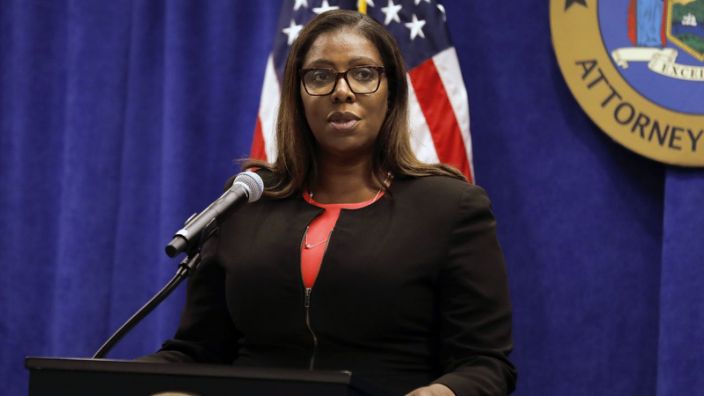 Intense back and forth between the Executive Chamber and State Attorney General Letitia James ensued Saturday and Sunday as the Governor ceded to calls for an investigation, at first, by directing former United States District Court Judge Barbara Jones to lead an investigation. Amidst mounting criticism of the unprecedented move to select his own investigator, circumventing State Attorney General Letitia James (It is worth noting that both recent investigations of former Governors David Paterson and Eliot Spitzer were referred to the Office of the Attorney General, who at the time was Andrew Cuomo.), the Governor announced Sunday night that he would relent to James’s demands for specific powers to fully investigate sexual harassment allegations against him. ”The Governor’s Office wants a thorough and independent review that is above reproach and beyond political interference. Therefore, the Governor’s Office has asked Attorney General Tish James to select a qualified private lawyer to do an independent review of allegations of sexual harassment. The independent lawyer will be considered the ‘special independent deputy attorney general’ and have subpoena powers under state law 63(8) referral,” said Special Counsel and Senior Advisor to the Governor Beth Garvey. The change appears to meet the demands from James, who wanted such powers under that state law in order to be able to issue subpoenas, but she could not do so until the Governor issued an official referral under state law 63(8).
Intense back and forth between the Executive Chamber and State Attorney General Letitia James ensued Saturday and Sunday as the Governor ceded to calls for an investigation, at first, by directing former United States District Court Judge Barbara Jones to lead an investigation. Amidst mounting criticism of the unprecedented move to select his own investigator, circumventing State Attorney General Letitia James (It is worth noting that both recent investigations of former Governors David Paterson and Eliot Spitzer were referred to the Office of the Attorney General, who at the time was Andrew Cuomo.), the Governor announced Sunday night that he would relent to James’s demands for specific powers to fully investigate sexual harassment allegations against him. ”The Governor’s Office wants a thorough and independent review that is above reproach and beyond political interference. Therefore, the Governor’s Office has asked Attorney General Tish James to select a qualified private lawyer to do an independent review of allegations of sexual harassment. The independent lawyer will be considered the ‘special independent deputy attorney general’ and have subpoena powers under state law 63(8) referral,” said Special Counsel and Senior Advisor to the Governor Beth Garvey. The change appears to meet the demands from James, who wanted such powers under that state law in order to be able to issue subpoenas, but she could not do so until the Governor issued an official referral under state law 63(8).
Jack talked to News 4 and Jack O’Donnell on who might be chosen to investigate the sexual harassment claims against the Governor.
And last Thursday, state legislators spent hours hammering Department of Health Commissioner Howard Zucker and State Medicaid Director Donna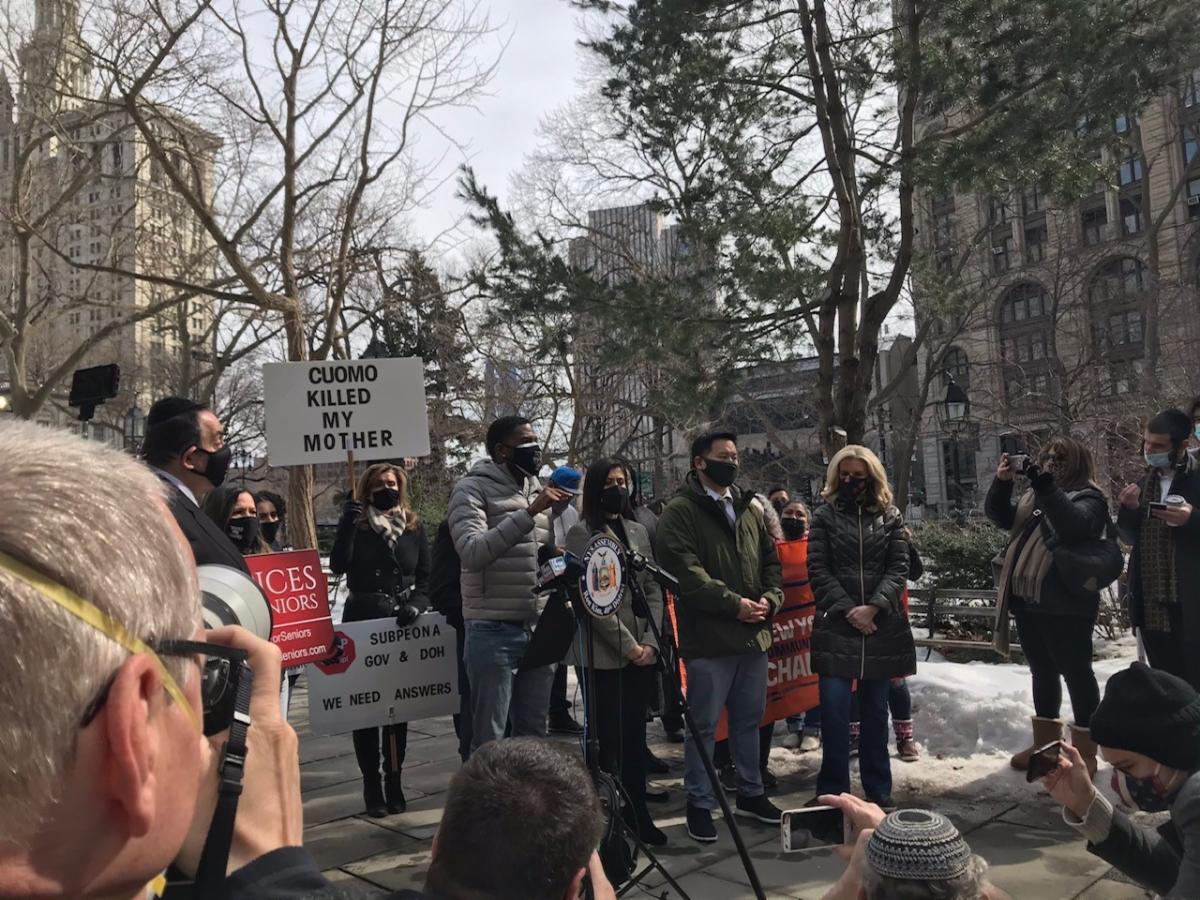 Frescatore with questions about New York’s handling of the coronavirus pandemic during a much-anticipated budget hearing Thursday, and did not conceal their displeasure with the Administration’s actions especially in regard to nursing homes. The Joint Legislative Budget Hearing on Health was mysteriously rescheduled from earlier in the month as the nursing home controversy first broke. The scrutiny was not limited to nursing homes: Zucker faced challenges from lawmakers over how vaccinations have been distributed; a provision to allow out-of-state practitioners to provide telehealth services in New York; staffing and personal protective equipment shortages; unilateral Medicaid cuts passed last year; the State’s expropriation of a Federal program (called 340B) intended to generate funds for safety net providers; other cuts to providers for senior citizens, alcohol and substance abuse, and mental health programs; and a legal immunity clause slipped into the state budget vote last year. That immunity was further highlighted by Assembly Member Kim, Sen. Biaggi, NYC Public Advocate Jumaane Williams, and NY Communities for Change at a press conference last week, as well.
Frescatore with questions about New York’s handling of the coronavirus pandemic during a much-anticipated budget hearing Thursday, and did not conceal their displeasure with the Administration’s actions especially in regard to nursing homes. The Joint Legislative Budget Hearing on Health was mysteriously rescheduled from earlier in the month as the nursing home controversy first broke. The scrutiny was not limited to nursing homes: Zucker faced challenges from lawmakers over how vaccinations have been distributed; a provision to allow out-of-state practitioners to provide telehealth services in New York; staffing and personal protective equipment shortages; unilateral Medicaid cuts passed last year; the State’s expropriation of a Federal program (called 340B) intended to generate funds for safety net providers; other cuts to providers for senior citizens, alcohol and substance abuse, and mental health programs; and a legal immunity clause slipped into the state budget vote last year. That immunity was further highlighted by Assembly Member Kim, Sen. Biaggi, NYC Public Advocate Jumaane Williams, and NY Communities for Change at a press conference last week, as well.
 Furthermore, several Republicans want more information on the State’s policies regarding COVID-19 deaths in facilities for the disabled. The critics are pointing to this situation as mirroring the Cuomo Administration’s handling of nursing home patients as ranking members on the mental health and disabilities committees said in a letter sent to OPWDD Commissioner Theodore Kastner last week: “It is troubling to learn of an April 10, 2020 advisory, in which the NYS Office for People with Developmental Disabilities mandated that ‘No individual shall be denied re-admission or admission to a Certified Residential Facility based solely on a confirmed or suspected diagnosis of COVID-19.’ Additionally, this Executive directive stated that ‘providers of Certified Residential Facilities are prohibited from requiring a hospitalized individual … to be tested for COVID-19 prior to admission or readmission.’
Furthermore, several Republicans want more information on the State’s policies regarding COVID-19 deaths in facilities for the disabled. The critics are pointing to this situation as mirroring the Cuomo Administration’s handling of nursing home patients as ranking members on the mental health and disabilities committees said in a letter sent to OPWDD Commissioner Theodore Kastner last week: “It is troubling to learn of an April 10, 2020 advisory, in which the NYS Office for People with Developmental Disabilities mandated that ‘No individual shall be denied re-admission or admission to a Certified Residential Facility based solely on a confirmed or suspected diagnosis of COVID-19.’ Additionally, this Executive directive stated that ‘providers of Certified Residential Facilities are prohibited from requiring a hospitalized individual … to be tested for COVID-19 prior to admission or readmission.’
From the Nation’s Capital…
In a razor thin vote early Saturday morning (219-212), the House passed President Joe Biden’s $1.9 Trillion stimulus package, a major step toward enacting the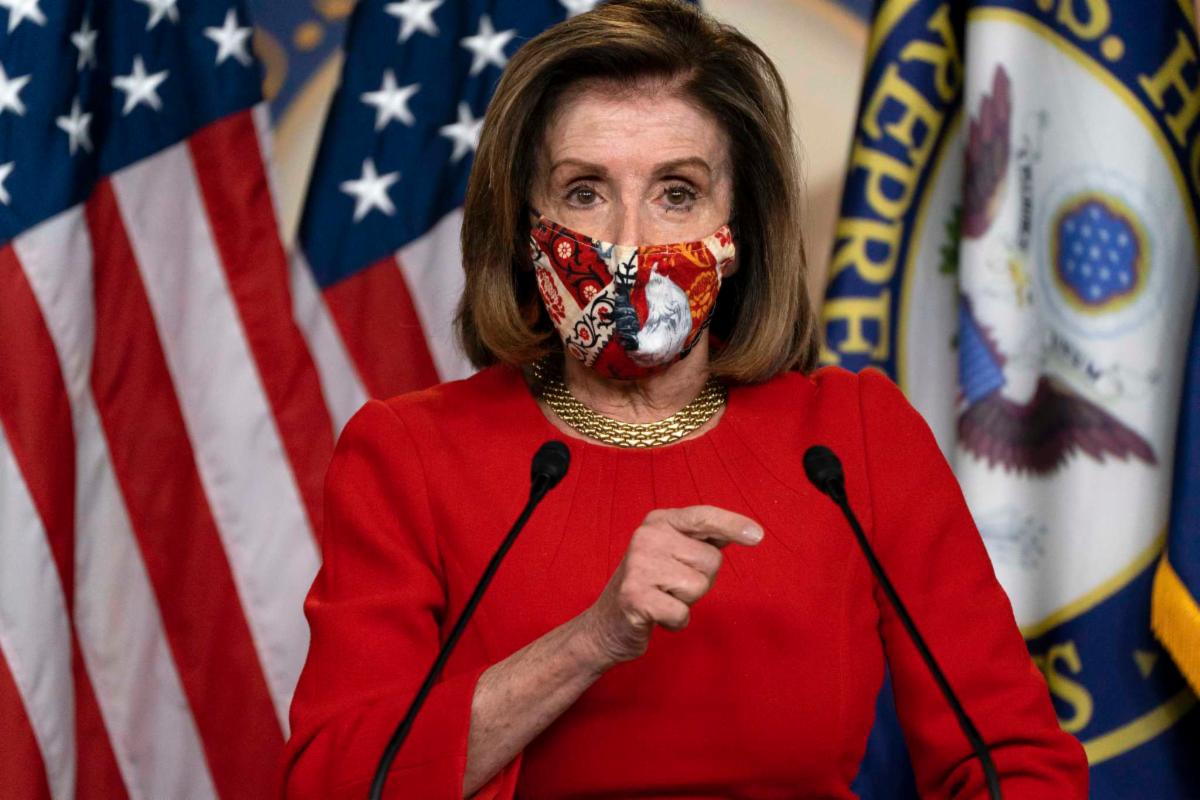 first major congressional priority of the Biden Administration. The bill will now go to the Senate where it is expected to pass swiftly before Democrats’ March 14th deadline (the same day that extended unemployment benefits are set to expire). However, the Senate is expected to strip out a provision in the legislation increasing the federal minimum wage after the Senate parliamentarian ruled against including it under reconciliation, which, as we have discussed the past few weeks, Senate Democrats are using to pass the bill with a simple majority vote. The bill would then have to go back to the House for a separate vote before Biden could sign it into law.
first major congressional priority of the Biden Administration. The bill will now go to the Senate where it is expected to pass swiftly before Democrats’ March 14th deadline (the same day that extended unemployment benefits are set to expire). However, the Senate is expected to strip out a provision in the legislation increasing the federal minimum wage after the Senate parliamentarian ruled against including it under reconciliation, which, as we have discussed the past few weeks, Senate Democrats are using to pass the bill with a simple majority vote. The bill would then have to go back to the House for a separate vote before Biden could sign it into law.
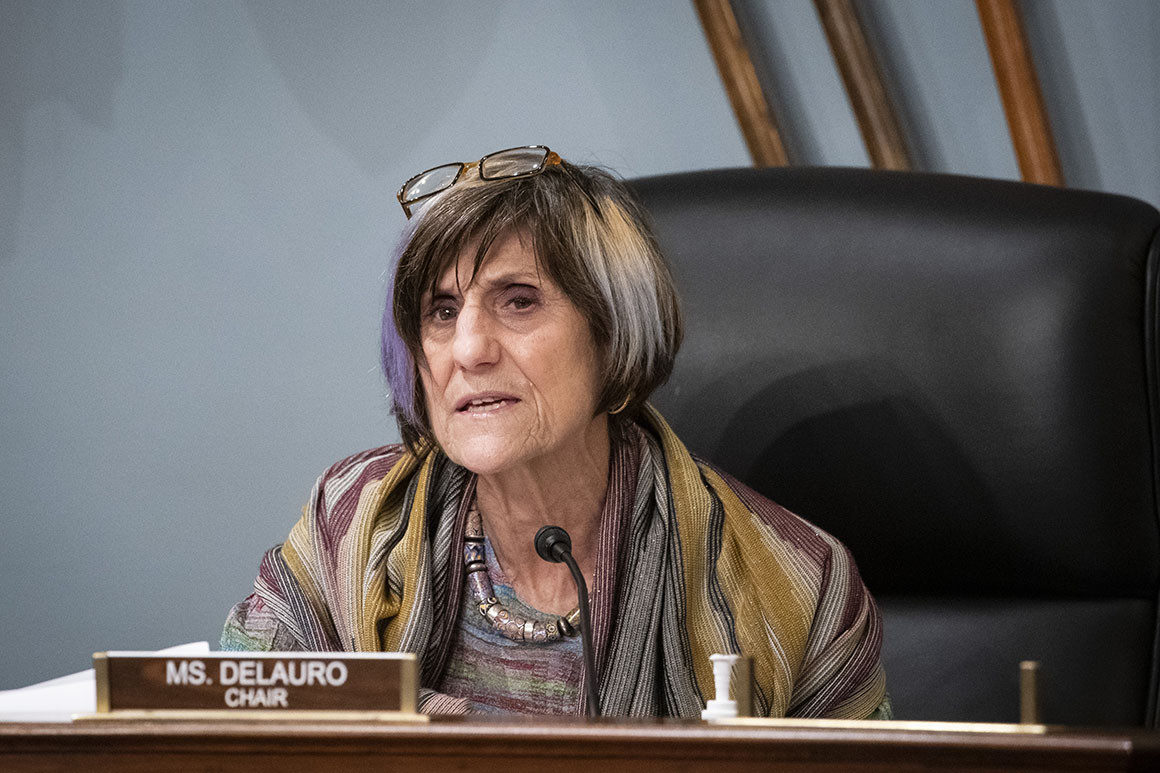 Perhaps even bigger news from D.C. is that earmarks—congressionally directed spending—will return for the first time since 2011, creating an influx of discretionary dollars across the country. House Appropriations Chair Rosa DeLauro (D-Conn.) revealed a long-awaited proposal on Friday to restore earmarks, including major changes aimed at building bipartisan support. Democrats are rebranding earmarks as “Community Project Funding,“ detailing a plan to tuck cash into annual spending bills that would benefit specific projects, rather than the current practice of allowing agencies to decide where all funding is allocated. The overhaul is an attempt to break from the politically taboo reputation of earmarks as wasteful and secretive “pork-barrel“ spending. It could also provide an incentive for members of both parties to support the next major funding deal, since lawmakers could take credit for securing funding for their districts. Have a project you think would be worthwhile? Let’s discuss.
Perhaps even bigger news from D.C. is that earmarks—congressionally directed spending—will return for the first time since 2011, creating an influx of discretionary dollars across the country. House Appropriations Chair Rosa DeLauro (D-Conn.) revealed a long-awaited proposal on Friday to restore earmarks, including major changes aimed at building bipartisan support. Democrats are rebranding earmarks as “Community Project Funding,“ detailing a plan to tuck cash into annual spending bills that would benefit specific projects, rather than the current practice of allowing agencies to decide where all funding is allocated. The overhaul is an attempt to break from the politically taboo reputation of earmarks as wasteful and secretive “pork-barrel“ spending. It could also provide an incentive for members of both parties to support the next major funding deal, since lawmakers could take credit for securing funding for their districts. Have a project you think would be worthwhile? Let’s discuss.
— Jack O’Donnell
FOR DAILY UPDATES, FOLLOW US:


Marjorie Taylor Green Under Fire After LGBTQ Feud with Rep. Newman
Rep. Newman talked about the importance of the Equality Act for transgender individuals such as her daughter. Greene then posted a tweet denying her daughter’s gender identity. [Read more.]

Trump’s Politics Hurt his Businesses. Will He Sell as He Looks to a Potential 2024 Campaign?
Some of Trump’s businesses are in crisis, facing sharp drops in revenue and an exodus of clients, lenders, lawyers and business partners. Now, sharks are circling. [Read more.]
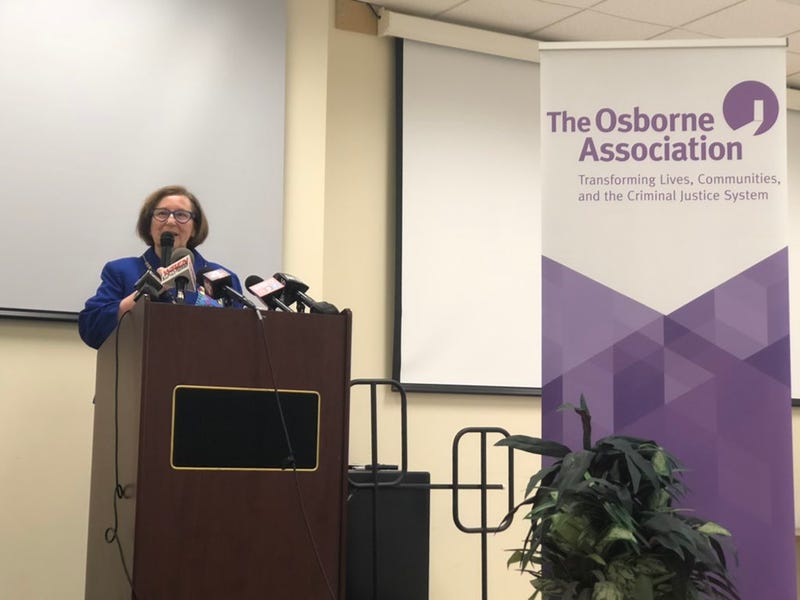
New Initiative Announced to Help Buffalo Children Who Witness Arrest of Parents
“One of the most trauma-inducing factors in the lives of children of incarcerated parents is being present when their parents are arrested,” Denise O’Donnell, Senior Advisor of the Osborne Association, said. “They experience that trauma through their lives.” [Read more.]
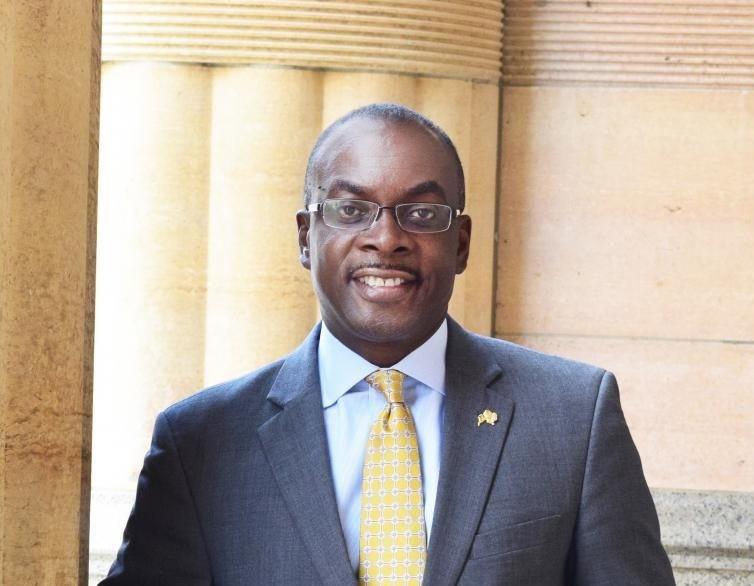
OD&A in the News
 Gold Trump Statue on Sale at CPAC for $100,000
Gold Trump Statue on Sale at CPAC for $100,000
A bizarre gold statue of former President Trump clad in sandals and waving a magic wand was up for sale at CPAC — for anyone with a cool $100,000 to spend. [Read more.]
cool $100,000 to spend. [Read more.]
Tweet of the Week
John Boehner has been going off script while recording the audio version of his new memoir, using expletives and asides not in the book – such as saying, “Oh, and Ted Cruz, go f**…
O’Donnell & Associates 2021
Preview of New York Policy & Politics
NYS Legislature: New Member Spotlight
Senator Michelle Hinchey (46th Senate District of New York)
Senator Michelle Hinchey was elected to the 46th Senate District, which includes Greene and Montgomery Counties and parts of Ulster, Schenectady, and Albany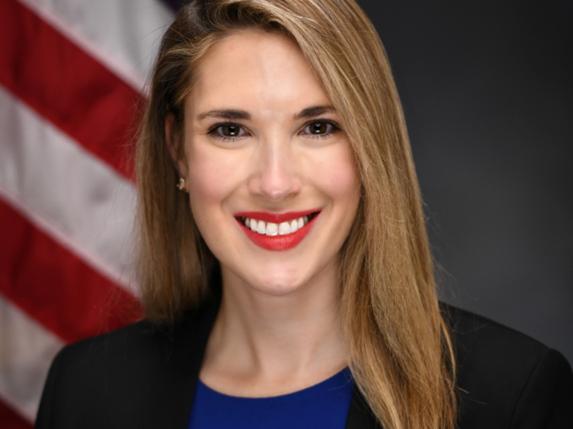 Counties, after defeating Republican Richard Amedure in the November general election. Her win flipped the seat which had been held by Republican George Amedore since 2015 and added to the seats gained in 2018’s blue wave, giving Democrats in the Senate a supermajority.
Counties, after defeating Republican Richard Amedure in the November general election. Her win flipped the seat which had been held by Republican George Amedore since 2015 and added to the seats gained in 2018’s blue wave, giving Democrats in the Senate a supermajority.
Senator Hinchey was born and raised in Saugerties and has been a lifelong resident of Upstate New York.
Senator Hinchey is a graduate of the Industrial and Labor Relations School at Cornell University, where she studied the history of the American Labor movements. After graduating in 2009, Michelle started a career in the private sector as a communications executive in the technology and media industry. There, she played a key role in diverse coalition building and served as a central connector across corporate departments.
In the early stages of her career, Senator Hinchey worked as a grassroots organizer for Environment New York. There, she successfully campaigned to end the dangerous practice of fracking for the extraction of natural gas and continued her environmental advocacy as a member of the Board of Directors of the Catskill Center for Conservation and Development. As Board member, she worked with her colleagues to foster environmental and economic well-being across the region.
As the daughter of former Assembly Member and Congressman Maurice Hinchey, Michelle has extensive knowledge of state and local politics. She is hoping to apply that knowledge in an effort to preserve our environment and build sustainable rural economies. This session, Hinchey will serve as the Chair of the Senate Standing Committee on Agriculture, and a member of the Committees on Alcoholism and Substance Abuse; Commerce, Economic Development and Small Business; Cultural Affairs, Tourism, Parks, and Recreation; Energy and Telecommunications; Environmental Conservation; and Local Government.


